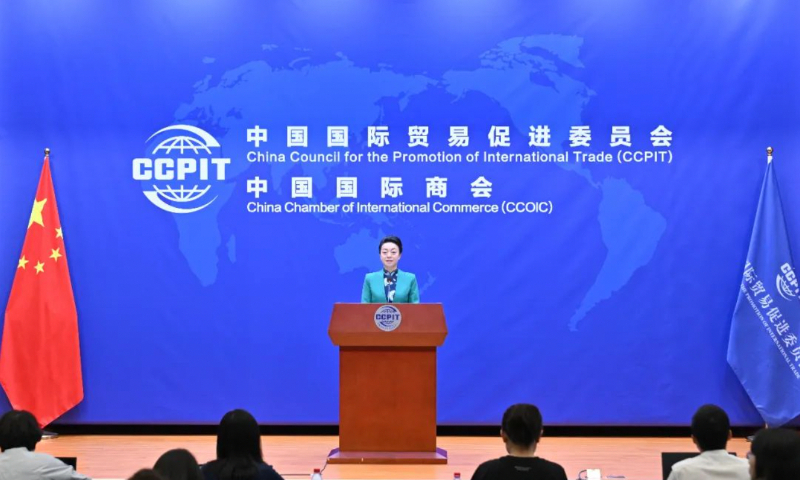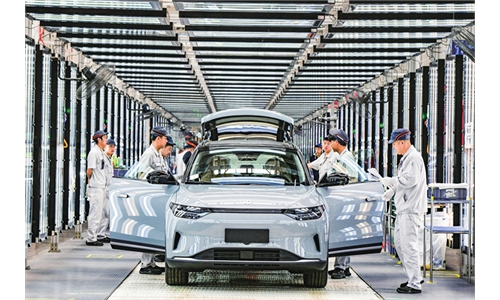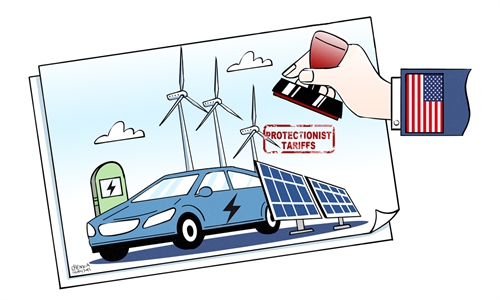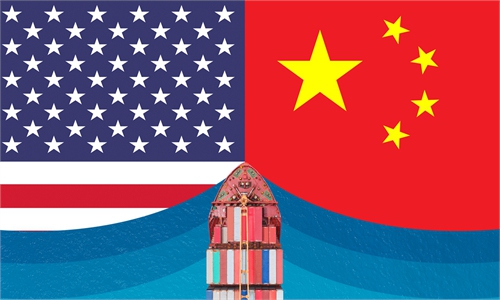
tariff Photo:VCG
China's main international trade promotion organization said on Thursday that it will closely monitor tariffs imposed by the US under the Section 301 provision, help key industries and companies increase capabilities to cope with risks, and take all necessary measures to protect the rights and interests of Chinese businesses.
During a press briefing in Beijing, a spokesperson for the China Council for the Promotion of International Trade (CCPIT) also vowed to further boost cooperation between Chinese and US businesses, pointing to a firm foundation for cooperation despite Washington's intensifying protectionism.
Asked about the CCPIT's plans in light of the new US tariffs, council spokesperson Zhao Ping reiterated that the US move will ultimately harm its own importers, manufacturing companies and consumers, citing US business executives' remarks about development opportunities in China.

Zhao Ping, spokesperson for the China Council for the Promotion of International Trade (CCPIT) Photo: CCPIT
Zhao noted that the latest report from the American Chamber of Commerce in China showed that more than half of US companies ranked China as their top investment destination, with more than 90 percent saying they will continue to develop in China. "It can be said that the business communities of China and the US have a solid foundation for strengthening mutual trust and cooperation," she said.
However, Zhao also criticized the Section 301 tariffs imposed by Washington.
"We will closely follow up on the progress of the US' imposition of Section 301 tariffs on China, carry out targeted work to help enterprises in key industries improve their risk prevention and response capabilities, and take all necessary measures to safeguard the legitimate rights and interests of Chinese enterprises," Zhao said.
The US government has announced that it will start imposing increased tariffs on an array of Chinese products, including electric vehicles (EVs), EV batteries, semiconductors and medical products on August 1, prompting harsh criticism from Chinese officials.
Experts said that while the US has become increasingly reckless in its protectionist policies and crackdown on China, it cannot completely cut off all business cooperation between Chinese and US firms, given the massive interests at stake.
"Trade tensions between China and the US are relatively high and worsening, but there is real demand in both markets. The huge complementarity of the Chinese and US markets provides a very important foundation for cooperation, and enterprises from both countries hope to benefit from such cooperation, which is in line with market demand," Zhou Mi, a senior research fellow at the Chinese Academy of International Trade and Economic Cooperation, told the Global Times on Thursday.
This is also reflected in some US businesses' success and expansion in the China market. US companies such as Tesla and Apple have been enormously successful in the China market and have announced expansion in China. Apple, for example, saw an impressive rebound in China in its iPhone shipments, which rose by 52 percent year-on-year in April, underscoring the vast potential in the China market for foreign businesses.
"Given such huge interest in bilateral cooperation, US businesses should raise their voices in calling for cooperation," Zhou said, noting that despite the US crackdown, businesses can still find new, innovative ways to carry out cooperation.
Li Yong, a senior research fellow at the China Association of International Trade, said that the US has clearly become a violator of global trade rules with its protectionism.
"There is no doubt that what the US is doing is wrong," Li told the Global Times on Thursday, noting that Chinese companies should not be affected by the US, and China should keep its own pace and maintain multilateralism and cooperation.




